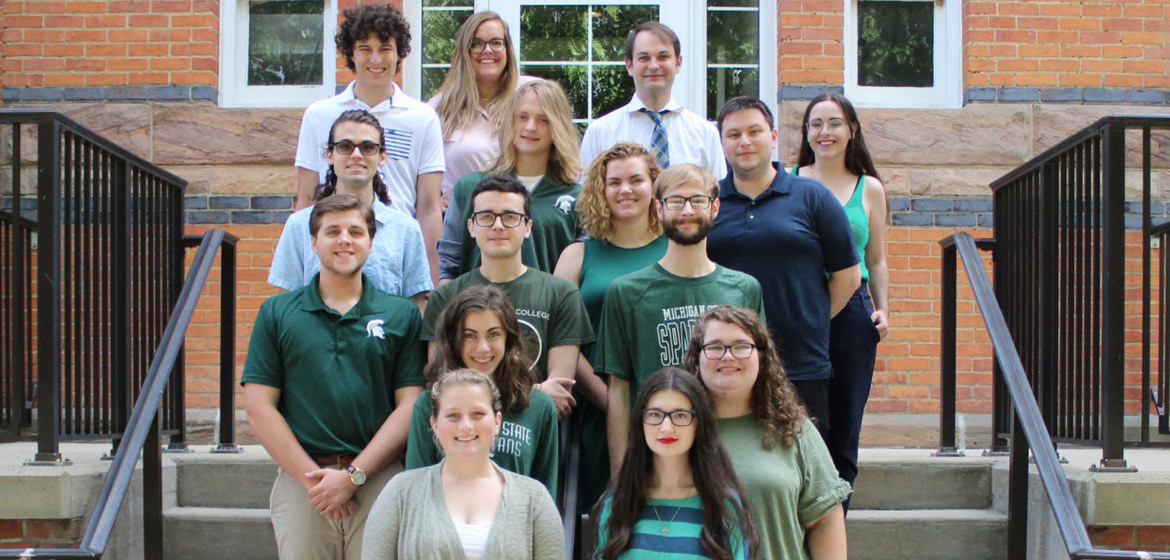Honors College MSU Debate Team Outreach

The past year has solidified the need for access and equity in all arenas, which has spelled benefits for those who are already making innovations in those areas. Thanks to a chance meeting between student and coach, the MSU debate team was one such organization that found itself on the cutting edge, leading the way to continue its programming virtually during the COVID-19 pandemic.
The team were fortunate to have a head start on using technologies that would become universal, like Zoom. Since he began his studies at Michigan State in 2019, computer science-major Nolan Hooper and MSU Debate Coach Will Repko have united in a mission to make debate more accessible to people with hearing impairments.
Collaborating with MSU Information Technology, the team experimented with different devices and methods of delivering debate audio. This culminated in an online scrimmage debate involving several other Big Ten universities.
In mid-March, shortly after the MSU Debate team’s most recent public debate at the Citizen Detroit Dinner, online debates became an absolute necessity with the safety measures taken due to COVID-19.
The experience Repko and Hooper had using that technology meant that they were at the forefront of showcasing how debate can continue with participants in a remote setting. It meant instead of cancelling their usual summer camp, they were able to host high school students from across the nation at a lower cost than ever before.
“We’re working with over 100 students from 19 different states,” Repko said “and none of them are physically coming to MSU’s campus.”
Other universities, as well as high schools, looked to MSU for guidance on how to continue to debate online. Not only has the new format allowed Nolan to fully participate in the debate team, but it has paved the way for others with differing hearing challenges to as well. Unprecedented challenges have forced the sport of debating to become more equitable for all.
“It’s been very rewarding, as a parent and as a coach who wants to have accessibility built in to more of what we do on this campus, to see this project go from a molehill to a mountain that is impacting the way that students from all around the nation are going to debate in the fall.” Repko said.
Reduced travel costs mean the debate teams have the potential to be more accessible to all, providing that the technology is there, and increasing the availability and literacy surrounding that technology has now become a crucial part of what the MSU Debate Team does. In 2020, the team announced a partnership with the National Association of Urban Debate leagues (NAUDL), which has team members helping to pilot different methods of online delivery in the hopes of increasing access to debate in communities around the United States.


